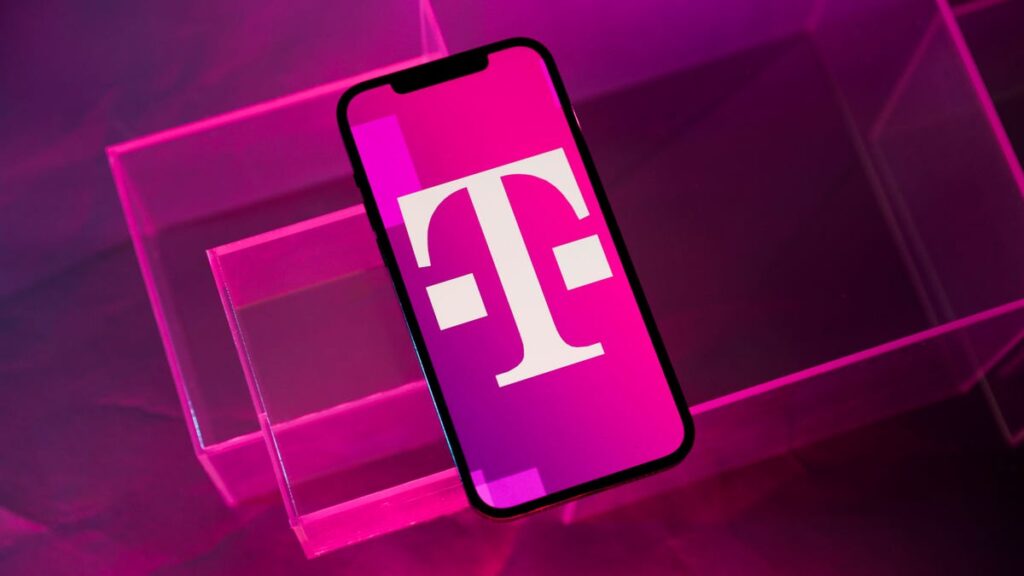Like most companies in 2024, T-Mobile is jumping onto the AI train. On Wednesday, the carrier announced that it has a new partnership with ChatGPT-creator OpenAI to create a new “IntentCX” offering that will use artificial intelligence to change how it offers support.
This new option not only plans to interact with customers as a bot, but the carrier also claims it will “even take proactive actions on their behalf.” Since it’s integrated with T-Mobile’s transaction systems, it’ll be able to make proactive recommendations and, with permission, even proceed with making changes or purchases.

For example, if someone reaches out about a network issue, the AI product will be able to look at the network conditions in the user’s area to try and diagnose if the issue is with the carrier or the user’s device. With access to the user’s customer data, it can identify whether the person making the complaint has an older device that doesn’t support the newer technology T-Mobile has introduced for a better connection.
If the customer’s phone happens to be older, the AI can then let them know if it has been paid off, offer a deal on a new device and, if the user has given permission, go ahead and make the purchase.
“I think every management team in the world and every CEO is looking at what it can do with AI,” T-Mobile CEO Mike Sievert told CNET. He noted that while many companies have deployed AI into customer service and support roles (something that T-Mobile has done as well), “our thought is that there’s a bigger opportunity here.”
Sievert noted that the company has access to “billions and billions of data points that our network produces about your lived experience on our network, the data points about billing and what has gone on with your billing relationship, the data points about your interactions with us, when you call us, when you stopped in the store, how you interacted with the app, and every other data point we can get our hands on.” With this data, it can train its AIs to create more personalized experiences that can address customers’ more individualized issues.
T-Mobile, he says, is taking “a different approach that’s not having just bots answer the phone or summarizing data for customer service reps.” The new system is “a rethink of how to create a world-class customer experience, customer by customer by customer, informed by the data about what will make that experience truly great for you individually.”
The company says that its new system will support multiple languages, handle “multithreaded conversations” and track the “previous context” of interactions, which should simplify the support process when you have multiple interactions about the same issue.
The AI offering will be integrated with T-Mobile’s customer support team, which the carrier calls its “Team of Experts.” The company says the system will be “trained in T-Mobile’s award-winning approach” to support and be integrated into its T-Life app that offers T-Mobile Tuesday and “Magenta Status” perks. The app has become the company’s centralized location for managing its platforms like its home internet service.
While T-Mobile is collaborating with OpenAI to develop the model using OpenAI’s APIs, both OpenAI and the carrier stress that T-Mobile’s data will not be used to train other OpenAI models.
Not replacing all humans, but it will affect some

The AI product will be rolled out in phases over the coming years, with the first implementations starting next year. Sievert says that with this AI tool, T-Mobile aims to reduce the customer connections between users and its human support staff by 75% by 2027 compared to its 2022 numbers. It also aims to have “100%” of its phone upgrades and half of its new customer activations done digitally.
The end goal, Sievert says, is to transform T-Mobile into a “deeply data-informed, AI-enabled digital-first company.”
With AI being the buzzword of 2024, there’s been lots of discussion about whether this technology will eventually replace some of the jobs done by humans today. When it comes to T-Mobile’s new implementation, Sievert doesn’t shy away from the fact that it eventually will.

“I think it’s going to replace the more rote, repetitive tasks that today we conduct, principally offshore,” Sievert says. The agents who are domestic, that work in T-Mobile’s Team of Experts support centers around the country, “are the place where you have the more highly trained experts able to parse more complex problems, able to [use] the native language, convey the proper listening empathy and problem solving skills, and those [jobs] will always be necessary.”
There are no immediate plans for layoffs at its US-based customer support centers, Sievert says, though he notes that those jobs may eventually shift into more sales-like positions that the company calls “virtual retail assist.”
“If you’re in our app and you want help because you have questions that you just like to talk to the person about, we’re able to engage immediately through virtual retail,” he says. “And we’ve already retrained quite a few people to do that across several of our centers.”
As device upgrades similarly get digitized, the carrier will also do away with some of its physical retail stores, particularly those owned and run by third-party resellers.
“Our sense is that over time, we will have fewer stores that are better staffed by more experienced people and that are more company-owned.”
